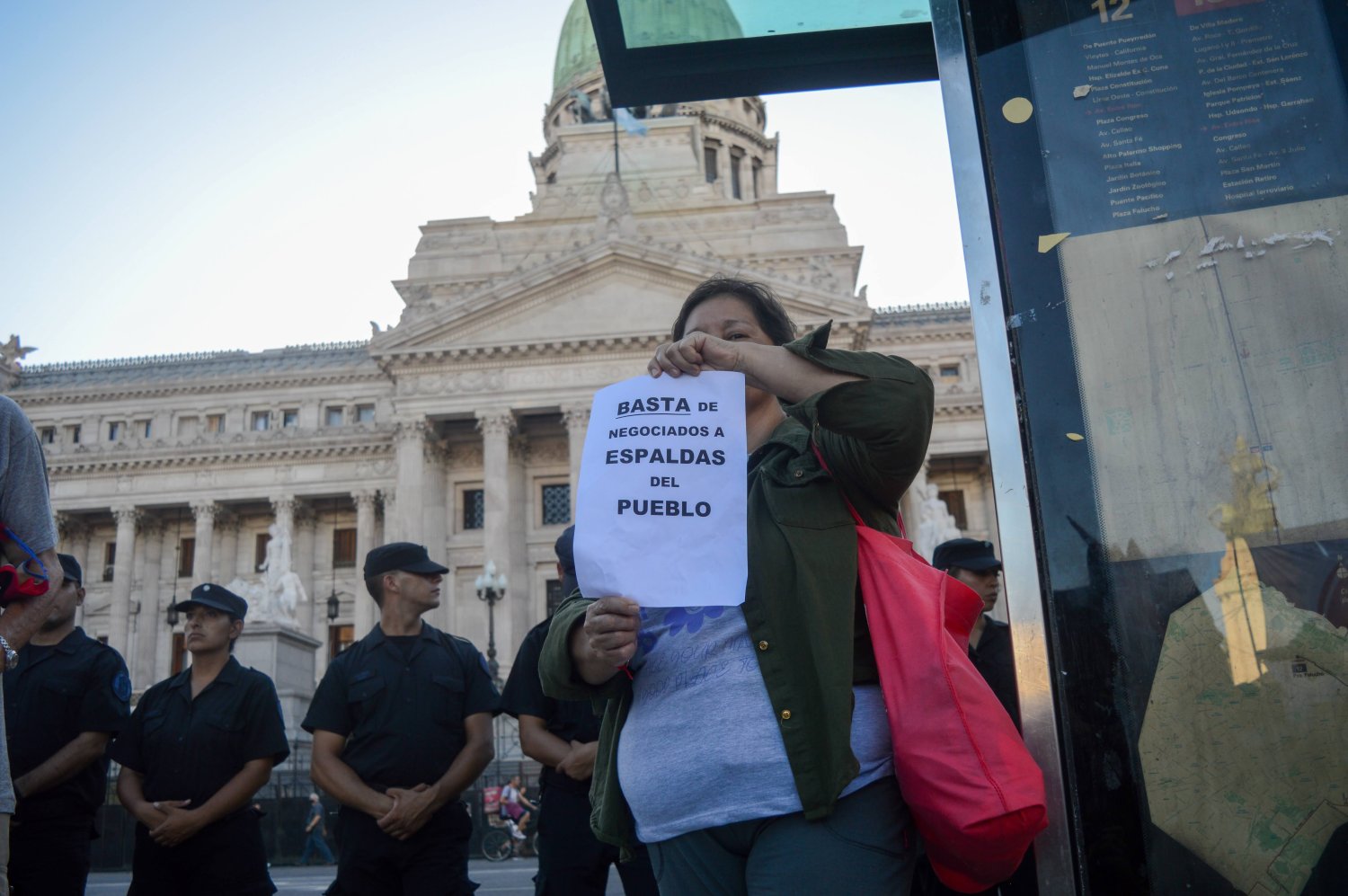
On Wednesday night the Milei government announced the new draft of the omnibus law, separating the “fiscal package”. It seeks to approve them as two separate laws but with simultaneous treatment. The text was modified lAfter a new round of negotiations with the PRO, the UCR and the Pichetto bloc. The labour reform It is not included in this version because the UCR is working on a draft that they intend to include in the opinion when it is debated in the commissions. Meanwhile, the leaders of the CGT They met with the government this Wednesday to enable debate and began to negotiate regressive changes.
The projects maintain the heart of the original version, which already contained enormous benefits to the richest in the country. On the list are: a money laundering (tax reductions or exemptions for those who have not declared their assets), a labor money laundering (with moratoriums and facilities for employers), reductions in the income tax personal propertythe Incentive Regime for Large Investments with benefits for 30 years, reforms to hydrocarbon law that are detrimental to guaranteeing the internal supply of energy.
In the other side, There are three points that the government incorporated after the negotiations with the collaborationist blocks, and they are already in the text. Are the attacks on retirees and workers.
The first is that it includes the elimination of the retirement moratorium: “Law No. 27,705 is repealed” says article 274. It is the law that contains the only pension moratorium in force for those workers who do not have all the contributions to be able to retire. As the representative denounced Myriam Bregman of the PTS-Frente de Izquierda, most of the women retire through a moratorium “Not for pleasure, but because there is unregistered work and household or care tasks are not considered work. “Milei wants to eliminate this moratorium and for us to lose that right.”. If the moratorium is eliminated as proposed by the government, those who do not have the contributions will only have the option of the PUAM (Universal Pension for the Elderly): with a 20% lower salary and in the case of women raising the retirement age to 65 years old. The leftist deputy Nicolás del Caño He also came to the crossroads of the new proposal. He summed it up in “rewards with tax exemptions to employers who did not register workers and punishes with the removal of the retirement moratorium those workers who are victims of companies that never registered them or made contributions”.
The second is the restitution of the salary tax which had been eliminated at the end of 2023 by law (4th category earnings). In the new text they propose that single people begin to pay the tax from salaries exceeding 1.4 million pesos per month in hand, and that the non-taxable minimum be updated once a year for inflation. With the floors they set, it is likely that many more workers will receive discounts on their pay stubs. The governors of the north are the ones who are most interested in the return of the salary tax, since it is co-participatory.
The third is a tax increase for monotributistas and especially in the lower categories. Those affected by this increase are mostly workers, many of whom are in a hidden dependency relationship.
There is a fourth attack that they want to incorporate in the coming days: the regressive labor reform. Based on the labor chapter of DNU 70/2023, which is being held up by the courts, UCR offered to write a proposal. The CGT also sat at the negotiating table with the government: they are willing to evaluate the removal of labor rights, but they oppose the inclusion of points that point to “the cash” managed by the unions (solidarity contributions and social works). The roadmap of the union leadership was discussed with Peronism and legislators from Unión por la Patriaand is in tune with the wink that Cristina Fernández made In his last letter where he spoke of the need to “a labor updating plan to respond to new forms of labor relations”.
The new draft maintains attacks on state workers that were in the original version. The advanced for the privatization of public companies is still included, although with negotiated changes with the blocks that call themselves dialogic. Instead of the 40 public companies that were initially up for privatization, this time they presented a list of 18 and grouped in three annexes: those that can be sold completely, those that can be sold partially and those that would be transformed with private concessions. In the first group are: Aerolíneas Argentinas SA, Energía Argentina SA, Radio y Televisión Argentina SE, and Intercargo SAU. In the second Nucleoeléctrica Argentina SA, Banco de la Nación Argentina, Nación Seguros SA, Nación Reaseguros SA, Nación Seguros de Retiro SA, Nación Servicios SA, Nación Bursátil SA, Pellegrini SA, and Yacimientos Carboniferos Río Turbio (YCRT). To concession they listed Agua y Saneamientos Argentinos SA (Aysa), Correo Oficial de la República Argentina SA, Belgrano Cargas y Logística SA, Sociedad Operadora Ferroviaria SE (SOFSE) and Corredores Viales SA
The government and the collaborators negotiated to maintain the delegation of powers in four areas: administrative, economic, financial and energy. In addition, the government intends to add more discretionary power to the president with another article, number 70. There he asks that powers be delegated to him to be able to do extensive economic deregulation with an impact on prices and the pockets of the majority. The self-proclaimed “dialogueists” are willing to give it delegated powers in the four matters, but there are more doubts about article 70.
The intention of La Libertad Avanza is return to the debate of this unfolded omnibus law next week in a plenary session of commissions. They will try to make it an “express debate” and rule as soon as possible incorporating all the changes from the two drafts and the labor reform. They are looking to meet on April 24 to achieve the half sanction. However, the dates are in doubt since The ruling bloc will have to deal with its internal tensions that escalated this Wednesday and ended with the displacement of Oscar Zago as president of the bloc, who was replaced by the Cordoban Gabriel Bornoroni. It was unleashed by the presidency of the impeachment commission, which Zago starred in disavowing Martín Menem who presides over the Chamber. Thus the dispute for power and for the “electoral seals” between the former head of the bench and Karina Milei, supporter of Martín Menem, broke in. The consequences of the internal conflict are still being processed and ruptures in La Libertad Avanza cannot be ruled out.
The second round of the omnibus law began and the battle will be again not only in Congress but in the streets. If in the first attempt to approve it there were persistent rejection mobilizations, this time they can be multiplied by the progress in the degradation of the living conditions of millions as a result of Milei and Caputo’s plan. The CGT It is also in the crosshairs of the social discontent that is rising below. What are you waiting for to call for a strike and fight plan? A question that can become unavoidable pressure for the union leadership, especially if protests grow to reject the omnibus law and the government’s economic plan.
Source: www.laizquierdadiario.com

